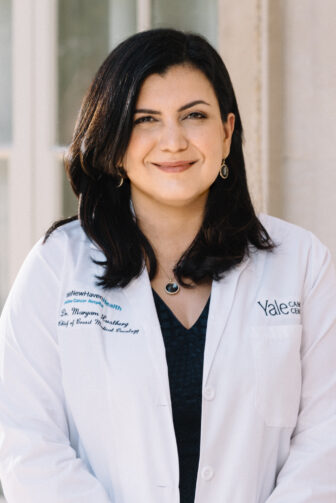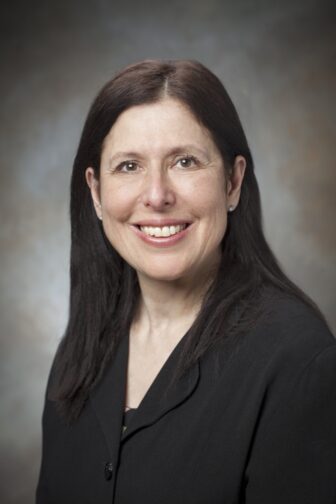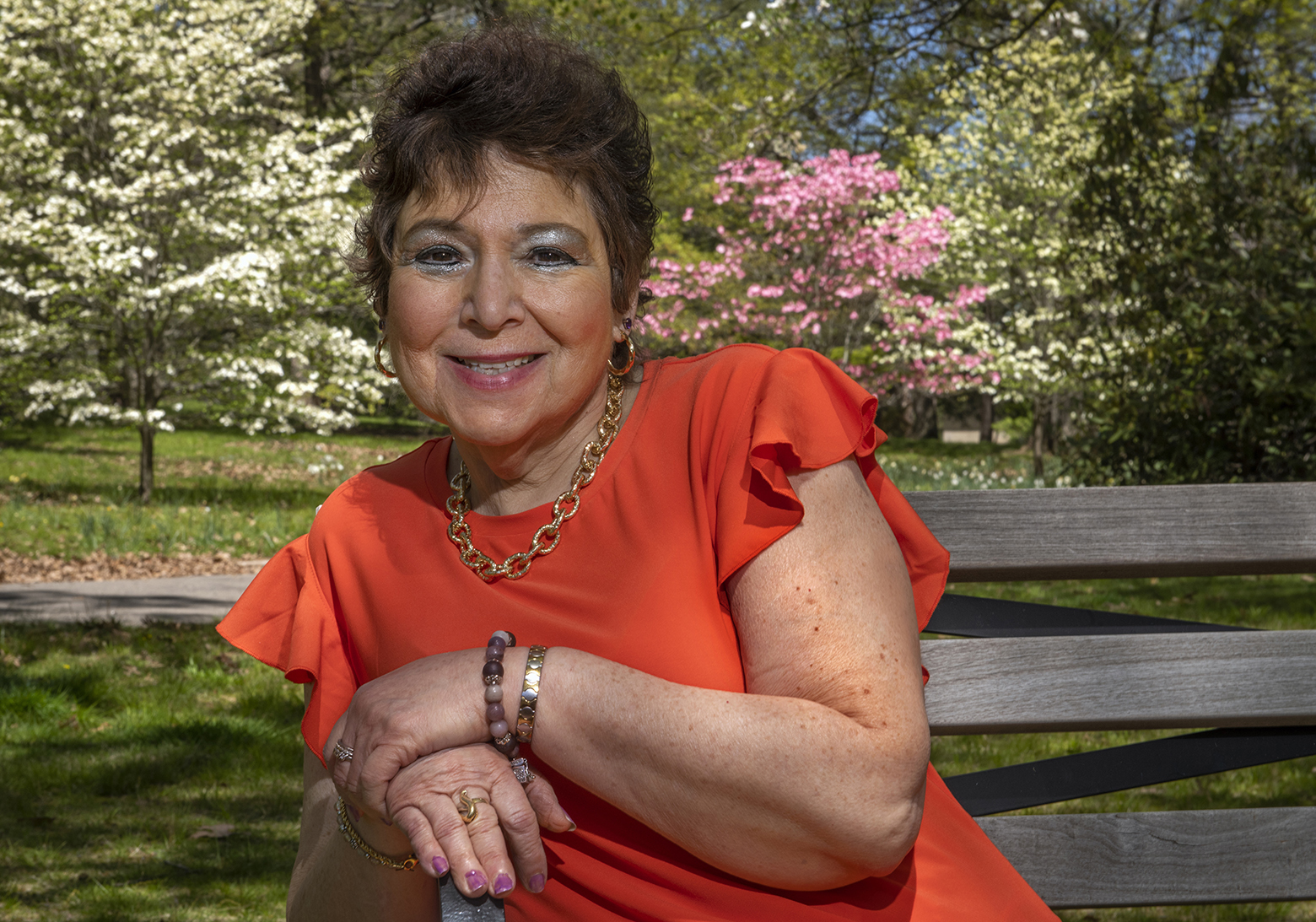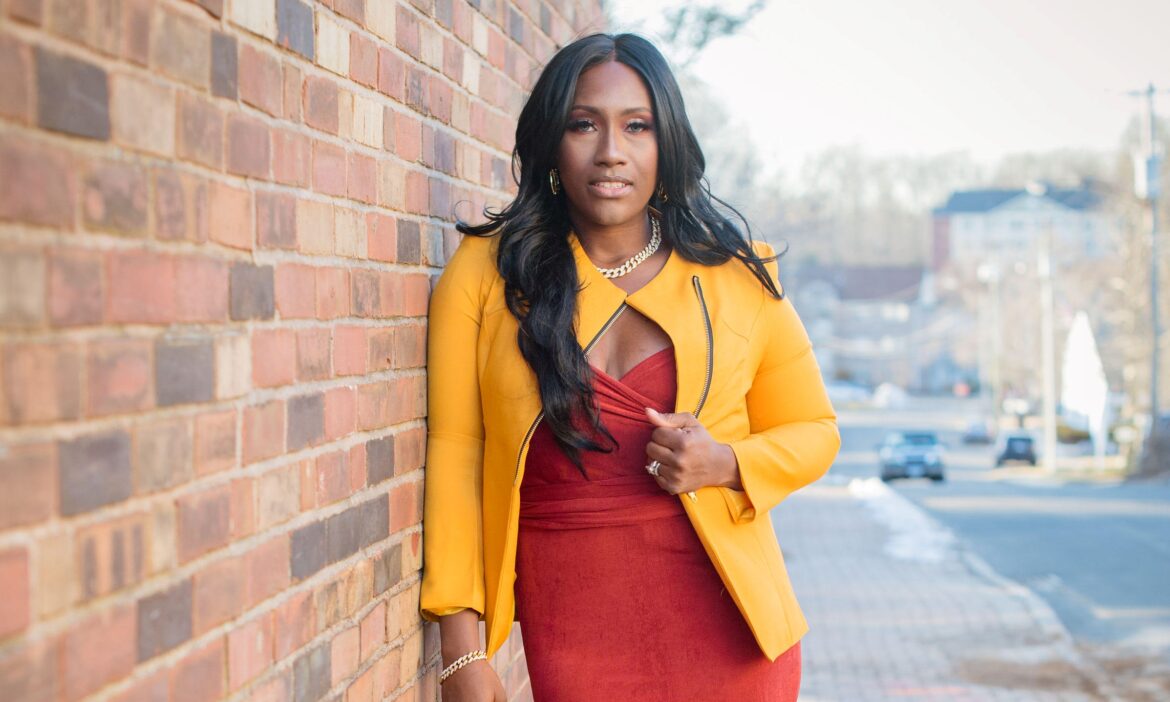Joshalyn Mills of Branford and Nancy Witz of Kensington had the best possible results after being treated in clinical trials with immunotherapy drugs for aggressive breast cancer: Their tumors were eliminated.
But while there are dramatic successes with immunotherapy drugs, there are also many failures, and researchers are trying to find out why in hopes of expanding the drugs’ effectiveness.
Cutting-edge immunotherapy drugs use a person’s own immune system to fight disease. The Food and Drug Administration (FDA) first approved the drugs in 2011 for cancer treatment. Success has occurred in about 15% to 20% of patients with cancers such as melanoma, lung, kidney and bladder, according to a report by Johns Hopkins School of Medicine.
But for breast cancer, there is just one drug—Keytruda—that has approval to treat triple-negative breast cancer, the most aggressive type. It must be administered in conjunction with chemotherapy.
Dr. Maryam Lustberg, director of the Yale Breast Center at Smilow Cancer Hospital, said that in one trial, the survival rate of patients with early stage triple-negative breast cancer increased from 16 months with just chemotherapy to 23 months with chemo combined with Keytruda.

Dr. Maryam Lustberg
“So, while the numbers may appear small,” she said, “it is something that is incredible. We have had no advances in this type of breast cancer for so long.” Triple-negative cancer accounts for 15% to 20% of all breast cancers and is the deadliest type if untreated, she said.
Other immunotherapy drugs not yet approved by the FDA are given to patients in breast cancer clinical trials, which is how Mills and Witz received theirs. Mills was in a trial in 2017, and Witz’s trial started last August. Both were diagnosed with triple-negative breast cancer.
Diversifying Breast Cancer Trials
Mills discovered a lump in her breast on her 34th birthday at a fitting for her wedding gown. “I had to survive,” she said, noting that she and her husband have four children in their blended family. She started treatment a week after her honeymoon.
As a Black woman, Mills said, she believes she wouldn’t have been offered a trial if she didn’t live in the New Haven area.
Dr. Andrea Silber, Mills’ oncologist at Yale, prioritizes diversifying breast cancer trials to include more people of color and other underserved groups such as non-English-speaking patients, uninsured and underinsured people, and people with additional illnesses.

Dr. Andrea Silber
“Traditionally, clinical trials often have people who are the healthiest, sometimes the wealthiest, with the best access,” Silber said. “It’s really about health equity, making sure everyone who’s diagnosed with cancer has the same chance to get better.” Silber is associate clinical director for diversity and health equity at Yale Cancer Center, which encompasses Smilow and Yale School of Medicine.
Lustberg said studies are being conducted nationally on barriers to clinical trial participation, including whether providers “have unconscious biases” that cause Black patients to be excluded from trials.
“We believe the best care is given in clinical trials. Patients are carefully observed, they have access to the latest drugs, and most eyes are on them,” said Lustberg, who is also chief of breast medical oncology at the Yale Cancer Center.
Dr. Alvaro Menendez, an oncologist and hematologist at Hartford HealthCare Cancer Institute, is among those researching racial disparities in cancer care. To improve access to timely detection, Hartford HealthCare and Yale New Haven Health bring mobile mammogram vans to underserved communities.
A higher rate of Black women die from breast cancer, according to the Centers for Disease Control and Prevention (CDC). In Connecticut in 2018, 24.6 out of every 100,000 Black women died of breast cancer compared to 15.8 out of every 100,000 white women, according to the CDC’s recent age-adjusted statistics.
New breast cancer cases reported in Connecticut in 2018 totaled 122.5 per 100,000 Black women and 136.4 per 100,000 white women, the CDC statistics show.
Nationally, in 2018, for every 100,000 Black women, 27 died of breast cancer with new cases reported in 121, according to the CDC. For every 100,000 white women, 19 died of breast cancer that year while 128 new cases were detected, the CDC reports.
In addition, Black women have nearly three times the risk of triple-negative breast cancer than white women, according to a study led by the University of Pennsylvania’s Perelman School of Medicine.
Age is another factor in immunotherapy clinical trials. The participation of Witz, at 68, was unusual even though cancer disproportionately affects older people, Silber said. “If you’re testing a drug on a 40-year-old, you have no idea what adverse side effects would be in an older group,” she said.
Witz grabbed the opportunity. “I had no choice. We’re talking about death here,” she said. “Just give me my life,” she told Silber.
Side Effects, Financial Barriers
Before her diagnosis last Memorial Day weekend, Witz was a substitute teacher, Eucharistic minister, comedian, swimmer, and a former clown. She was diagnosed after seeking medical help for acute chest pains and indigestion-like discomfort.

Melanie Stengel Photo.
Nancy Witz welcomed the opportunity to participate in a clinical trial. “I had no choice. We’re talking about death here,” she said. Witz was photographed in Edgerton Park, New Haven, after her radiation treatment.
In her 12-week immunotherapy/chemotherapy regimen, constipation was her only side effect, she said. She also had a lumpectomy and 23 radiation sessions. Plans for additional chemotherapy were scrapped because of her good outcome, Silber said.
But Mills had serious side effects from her 2017 treatments, including blood clots in a carotid artery and a pulmonary embolism. She had so much trouble breathing that she couldn’t walk more than a few steps. She was hospitalized, and her cancer treatment was suspended. She also had a full-body rash, and her tongue turned purple. More than four years later, some of her fingernails and toenails still fall off. Because a gene mutation predisposes her to cancer, she also had a double mastectomy and hysterectomy.

Dr. Steve Lo
Dr. Steve Lo of Stamford Health’s Bennett Cancer Center explained that side effects are significant in about 10% of immunotherapy patients. He said they occur when immunotherapy medicine attacks non-cancerous cells. He cited cases where the lungs or gastrointestinal tract are affected.
“You can have people who can’t breathe and need oxygen or have diarrhea 10 or 20 times a day,” said Lo, the center’s medical director of medical oncology. “People can die from those complications,” he added.
Lustberg said there needs to be a way to “give it more safely,” adding, “We are absolutely watching patients very carefully.”
Another issue is cost, which runs about $12,000 per dose, she said. Mills and Witz weren’t charged for the immunotherapy meds in their trials but were responsible for other costs, including chemotherapy and surgery. Mills said she is still paying off more than $6,000 in co-payments not covered by insurance.
Patients prescribed immunotherapy have big bills if they have high deductibles, Lo said. “Deductibles can be anywhere from $3,000 to $10,000, and with these drugs, you go through your deductibles,” he said.
When immunotherapy works, it’s “very exciting,” said Dr. Patricia A. DeFusco, medical director of the Hartford HealthCare Cancer Institute Breast Program. “You want to cure these people,” she said. Since Keytruda was approved, she has had two patients whose tumors disappeared after using it, which she called “phenomenal.”
“Over time, we’ll see if the responses are durable, that these cancers don’t reoccur,” she said.
Lo called immunotherapy quirky. While he has had successes with it, he said, he has also had patients for whom it does not work.
“That’s why we need to do very active research and why we need patients’ help” in clinical trials,” he said.

I was treating this disease for almost 4 year without much improvement, I was cured with World Rehabilitate Clinic formula. Their herbal formula totally kills cancer cells completely. They also have a cure for Hysterectomy Issues, Alzheimer’s Disease, Stroke and few other chronic diseases. Contact ( World Rehabilitate Clinic Com ).